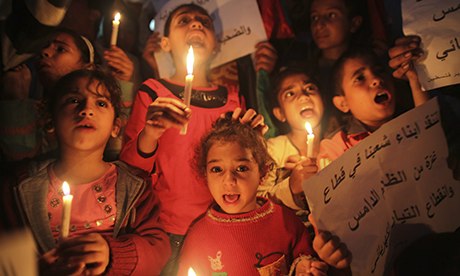د. فيصل القاسم
تكتـّم حزب الله اللبناني طويلاً على وجود قواته في سورية، وظل يبرر عملياتها بأنها كانت مجرد دفاع عن الأراضي اللبنانية المحاذية للحدود السورية. ولطالما نفى الناطقون باسم الحزب أي تورط لقواته في الصراع الدائر في سورية.
لكن سرعان ما راح حسن نصر الله يعلن بالفم الملآن أنه أرسل قواته للدفاع عن المراقد والمزارات الشيعية في سورية، وخاصة مرقد السيدة زينب جنوب دمشق. وعندما انكشفت هذه المزاعم، وبدأ عدد المقتولين اللبنانيين يتدفق على الضاحية بأعداد كبيرة، وغصت المشافي اللبنانية بجرحى الحزب، تغيرت المزاعم على الفور، وراح الحزب يعلن أنه توجه إلى سورية لمقاتلة ‘التكفيريين’ والإرهابيين’ ‘أذناب الصهيونية والامبريالية وأدواتها’ أعداء ‘المقاومة والممانعة’.
وكذلك صرحت إيران وميليشيات نوري المالكي العراقية التي نسيت بأنها صنيعة ‘الامبريالية’، وأنها عادت إلى العراق على ظهور الدبابات الأمريكية، وراحت تعلن عن عملياتها ضد الجماعات التكفيرية ‘المدعومة صهيونياً وأمريكياً’ في سورية. (شوفو مين عميحكي)؟ قال ‘تكفيريين’ قال!
مع العلم أن النظام الإيراني يقوم بتكفير أي شيعي لا يؤمن بولاية الفقيه الوضعية، فما بالك بأمور عقدية أخطر وأعقد، فمصير من يخالفها جهنم وبئس المصير.
لقد أصبح الشعار الأعرض الذي يتستر به فيلق القدس الإيراني برئاسة قاسم سليماني وحلفاؤه ‘الحزبلاتيون’ والعراقيون والحوثيون والباكستانيون والأفغان هو شعار ‘مقاتلة عملاء الصهيونية والامبريالية’ في سورية!
ولما لا، فهو شعار براق يتوافق مع شعارات ‘المقاومة والممانعة’، ويمكن الضحك به على ذقون الذين ما زالوا مغفلين، خاصة بعد أن بات معظم الشارع العربي يسمي الممانعة ‘مماتعة’ لإسرائيل في النهار، و’مساكنة’ في الليل.
لكن لا بأس، فلا مانع من استخدام نفس الأكاذيب والمسوغات لتبرير التدخل السافر في سورية ضد الشعب السوري وقواه الحية. يا سلام: لقد تحول الشعب السوري الذي لطالما تغنى حزب الله وإيران بأنه شعب ‘مقاوم’، فجأة إلى شعب ‘متصهين’ وعميل للإمبريالية و’الشيطان الأكبر’، وبالتالي لا بد من مقاومته وممانعته على الطريقة الإيرانية الحزب اللاتية المعهودة.
وبقدرة قادر لم تعد الصهيونية ولا الامبريالية ولا الشيطان الأكبر يقبع في تل أبيب، ولا في الجليل، ولا في البيت الأبيض، بل صارت كلها في قرى ‘القصير’ و’تلكلخ’ و’مهين’ التابعة لمحافظة حمص السورية، وفي أقصى الشمال السوري في ريف محافظة حلب كقرى ‘نبل والزهراء’ و’السفيرة’ و’مارع′، وفي قرية ‘بصرى الشام’ بمحافظة درعا في الجنوب، وفي قرية الحجيرة جنوب غرب دمشق، والسيدة زينب جنوب العاصمة، و’الذيابية’ بالقرب من المطار الدولي، ناهيك عن ‘عقربا’ و’المليحة’ و’المعضمية’ و’داريا’، وكلها قرى تابعة لمحافظة ريف دمشق.
لقد بلغنا من العمر عتياً، وهذه هي المرة الأولى التي نعرف فيها أن الصهيونية تقبع في قرانا السورية الوادعة في الجنوب والشمال والغرب والشرق! لا بد أن نشكر حسن نصر الله على أنه اكتشفها لنا بعد كل هذا العمر الطويل. ولا بد أن نقبـّل يديه أيضاً على أنه جاء يحرر القدس المحتلة في قرى ريف دمشق وحلب وحمص ودرعا والسويداء وإدلب.
عجيب والله: الطريق إلى القدس يمر من ‘أريحا’ السورية في ريف إدلب، وليس من ‘أريحا’ الفلسطينية مثلاً. يبدو أن مقاتلي حزب الله بحثوا عن قرية ‘أريحا’ في ‘غوغل إيرث’، فلما وجدوها توجهوا إليها للقتال من أجل فلسطينعلى الفور، لكن دون أن يعرفوا في ما إذا كانت هذه ‘الأريحا’ في سورية أوفلسطين! المهم أنهم وجدوا ‘أريحا’، ولا بد للانطلاق منها لتحرير القدس حتى لو كانت في أقصى الشمال السوري بالقرب من مدينة إدلب الشهيرة.
‘أليس الأقربون جغرافياً أولى بالمعروف يا سيد نصر الله’، يصيح أحد السوريين ساخراً؟ لماذا تتجشم ميليشياتك عناء الطريق إلى شمال سورية، وتقطع مئات الكيلو مترات لتقتص من ‘عملاء الصهاينة’ المعادين لحلف ‘المقاومة والممانعة’ هناك، بينما أسياد ‘العملاء’ الذين تلاحقهم على الأرض السورية موجودون على مرمى حجر من ميليشياتك في جنوب لبنان وشمال فلسطين المحتلة، كما تسميها؟
لا شك أن غالبية السوريين والعرب، كما ترون، يسخرون من المزاعم الإيرانية والحزب اللاتية والعراقية الكوميدية بأنهم يقاتلون ‘عملاء الصهيونية’ في سورية. ولا أحد يأخذ مزاعمهم على محمل الجد، بل راح الكثيرون يهزأون بتلك الحجج الواهية التي لم تعد تنطلي حتى على الأطفال. قال شو قال: ‘نحن نخوض المعركة ضد الصهاينة في سورية’!؟
‘طيب’، يصيح أحد الناشطين على مواقع التواصل الاجتماعي: ‘يا خرتيت الضاحية إذا كان مرتزقتك موجودين في سورية للدفاع عن فلسطين، فلماذا لا ترسلهم مباشرة الى فلسطين؟ أليس منطقة الجليل المحتلة أقرب اليك واليهم من حلب السورية الواقعة على الحدود التركية’؟ لماذا لا تستعين بـ’غوغل إيرث’؟
وبالأمس وجهت إيران أصابع الاتهام لإسرائيل مباشرة بعد تفجير السفارة الإيرانية في بيروت. وهذه شجاعة لا بأس بها. لكن السؤال المطروح الآن: هل سترد إيران وحلفاؤها في المنطقة على إسرائيل مباشرة، كما تفعل إسرائيل ضد كل من يعتدي على سفاراتها، أم انها كالنظام السوري الذي يتلقى الضربة الإسرائيلية تلو الأخرى، لكن بدلاً من الرد على إسرائيل يرد على أطفال الغوطة بالكيماوي؟!
هل سنرى ‘صواريخ’ حزب الله مثلاً تدك المدن الإسرائيلية انتقاماً للأبرياء اللبنانيين والإيرانيين الذين قضوا نحبهم في تفجير السيارة الإرهابي الذي اقترفته أياد صهيونية حسب المزاعم الإيرانية؟ أم ان كل الصواريخ التي تنطلق من لبنان على إسرائيل أصبحت ‘صواريخ مشبوهة’، كما وصفها حسن نصر الله عام 2009؟ هل سترد طهران على ‘الصهاينة’ في تل أبيب مثلاً ثأراً لسفارتها المفجوعة؟ أم انها وجهت الاتهامات مباشرة لإسرائيل، لكنها سترد في طرابلس بلبنان، أو في سورية على ‘أذناب الصهيونية’ في حلب ودرعا ودمشق وحمص أيضاً؟ ‘أليس من الأجدى أن تضرب رأس الأفعى في تل أبيب، بدل أن تضرب ذيلها المزعوم في حمص مثلاً؟’ وإذا كانت إسرائيل مشتركة في المؤامرة على ‘المقاومة والممانعة’ فلماذا لا تردون عليها في عقر دارها بدل ريف دمشق؟’!
إلى متى تهددون إسرائيل ثم تردون في سورية؟ طبعاً سيردون على إسرائيل ‘بالمشمش’، خاصة بعد أن أعلن حسن نصر الله حرفياً:’ إن التقارب الإيراني مع (الشيطان الأكبر) فرصة لتعزيز محور المقاومة والممانعة’.
هل نفهم من هذا الكلام أن أمريكا حامية إسرائيل تحتضن أيضاً حلف الممانعة والمقاومة، وأن الطرفين أخوة في الرضاعة؟












